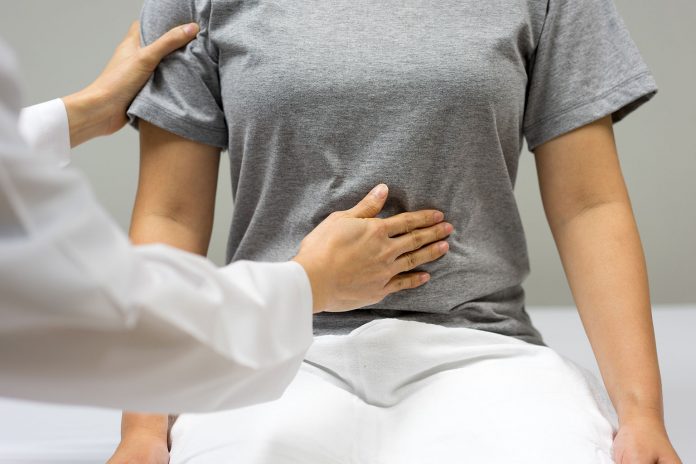Colon cancer is the third leading cause of cancer-related deaths in men and women in the United States. It is a type of cancer that develops in the large intestine (or colon). The risk factors for colon cancer include a family history of the disease, being over the age of 50, polyps, inflammatory intestinal conditions, a high fat-low fiber diet, and having a sedentary lifestyle. Colon cancers are one of the most preventable types of cancer when caught early. Five telltale colon cancer symptoms include:
1. Rectal bleeding
This symptom is usually noticed as trace blood in the toilet paper or stool. It can range from bright red to black tarry stools. When patients experience bleeding, it is often intermittent at first and then becomes more constant. Rectal bleeding in colon cancer patients is often caused by a tumor growing large enough to ulcerate or erode through the wall of the colon. The blood vessels in the area rupture and bleed into the intestine.
2. Abdominal pain
This symptom is often described as discomfort or pain in the abdomen that is not related to eating. The pain may be cramp-like, dull, achy, or sharp and severe. It can be constant or intermittent. Abdominal pain is caused by the tumor pressing on the wall of the colon or other nearby organs. The pain may also be caused by bleeding into the intestine from a ruptured blood vessel.
3. Diarrhea or constipation
Patients may experience a change in their bowel habits that lasts for more than a few days. The stools may be watery, loose, or bloody. Diarrhea can also cause pain on the lower abdomen and cramping. Constipation is often caused by the tumor blocking the passage of stool through the colon. Cancer treatments may also cause diarrhea or constipation.
4. Blood in the stool
Blood in your stool often occurs with colon cancer when bleeding occurs in the intestine. The blood may be bright red or black and tarry. It is mostly seen when you wipe after a bowel movement. Patients who experience blood in their stool often have other symptoms of colon cancer, such as rectal bleeding, pain on the lower abdomen, and changes in bowel habits.
5. Feeling like the bowel won’t empty
This symptom is also called tenesmus. It’s characterized as feeling the need to have a bowel movement; but the bowel isn’t fully empty. This can cause cramping and pain in the abdomen. Tenesmus is caused by the tumor blocking the passage of stool through the colon. Tenesmus is very uncomfortable, and patients often have a hard time finding relief. They may need to take laxatives or enemas to help empty their bowels.
Ultimately, if you experience any of these symptoms, it is important to see a doctor immediately. Early detection is key to beating colon cancer. If you are over the age of 50 or have a family history of colon cancer, you should be screened regularly. A screening test such as a colonoscopy can find polyps (abnormal growths) in the colon and remove them before they turn into cancer. The earlier colon cancer is caught, the better the patient’s chances of recovery.


